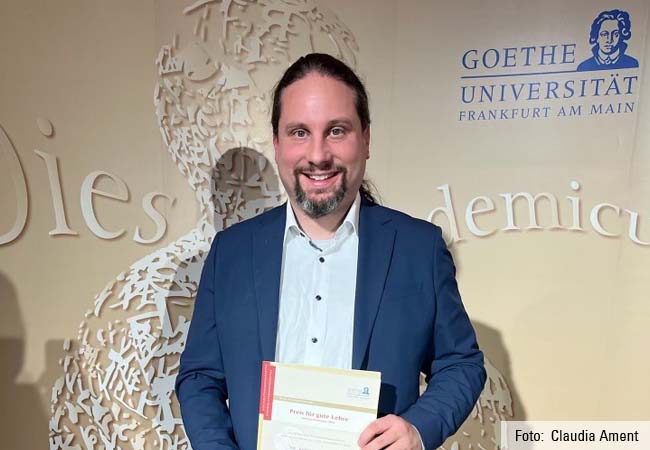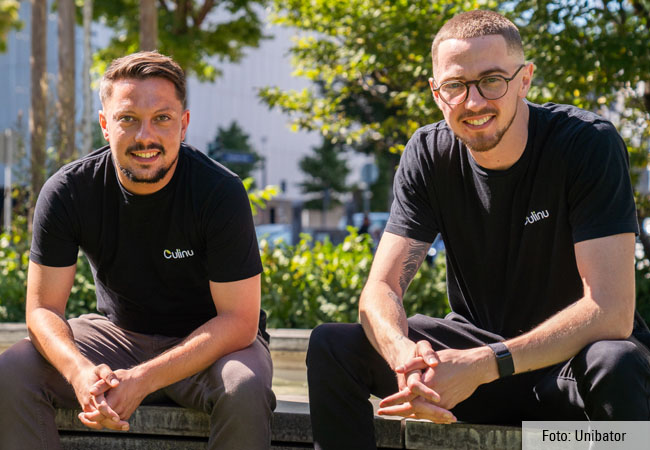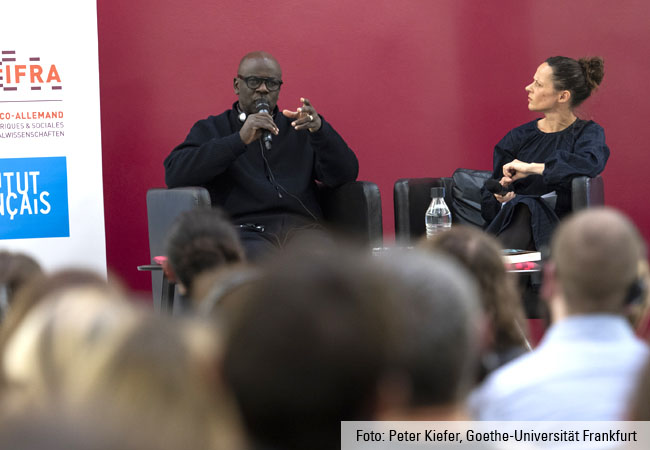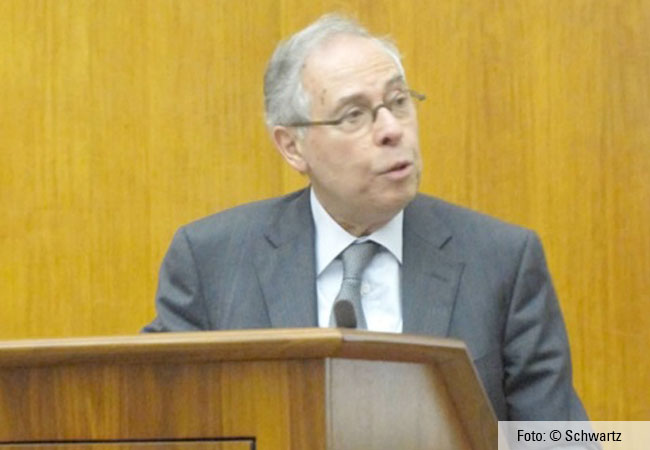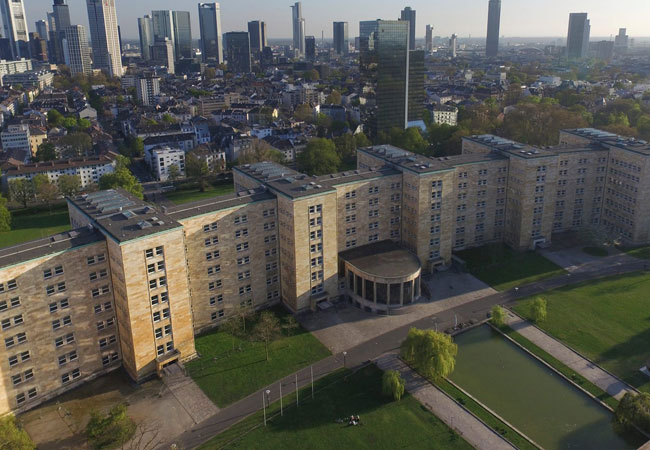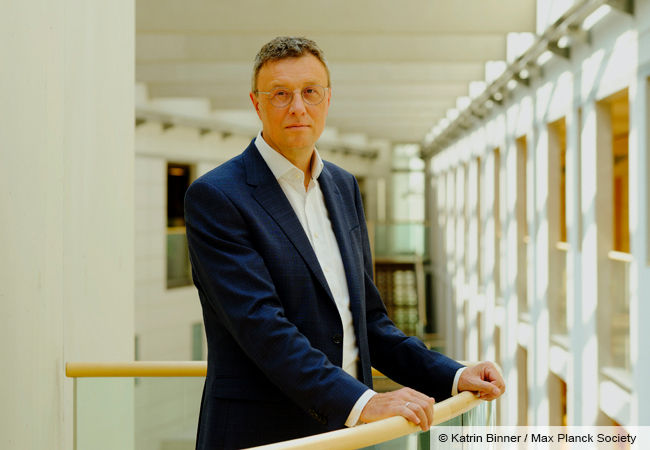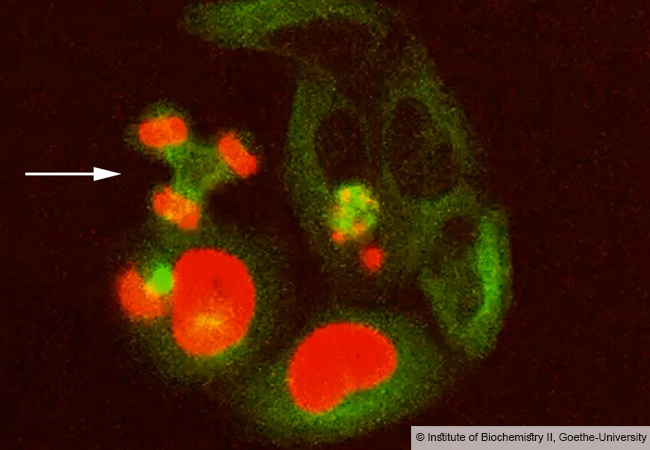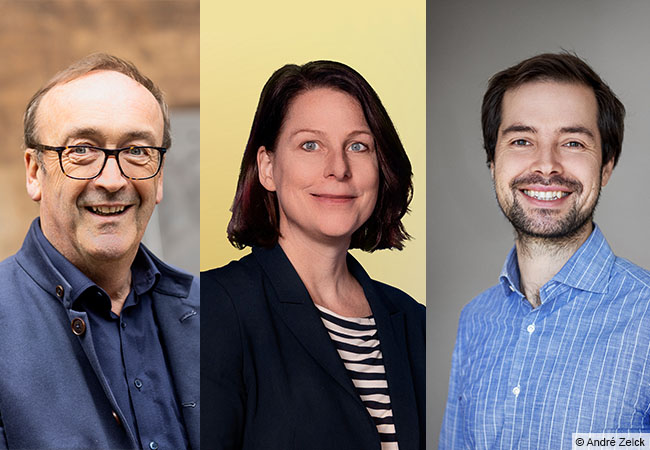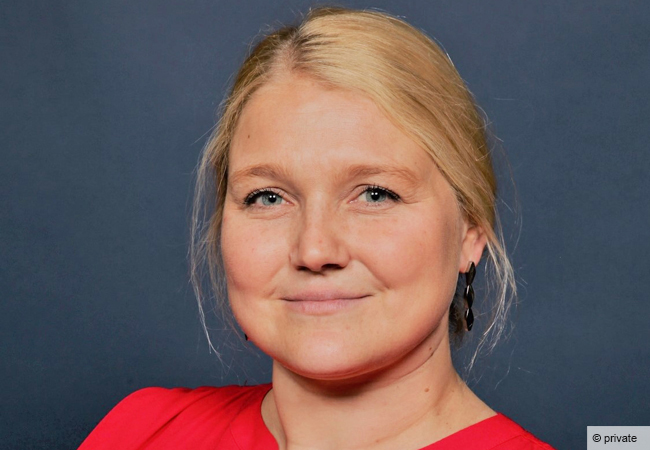Dr. Christian Seitz has been director of the Medical Library (MedHB) on Goethe University Frankfurt’s Niederrad Campus since September 1, 2024. That being the case, he actually wears two hats: head of the Medical Library and Goethe University’s open access officer. Seitz has had an interesting career that began in theology; he obtained his doctorate with a thesis in fundamental theology at the University of Erfurt. That being as it may, he emphasizes: “My thesis was a theoretical scientific work that examined interactions between the humanities and the natural sciences – making it a really great foundation for the interdisciplinary work I do today.”
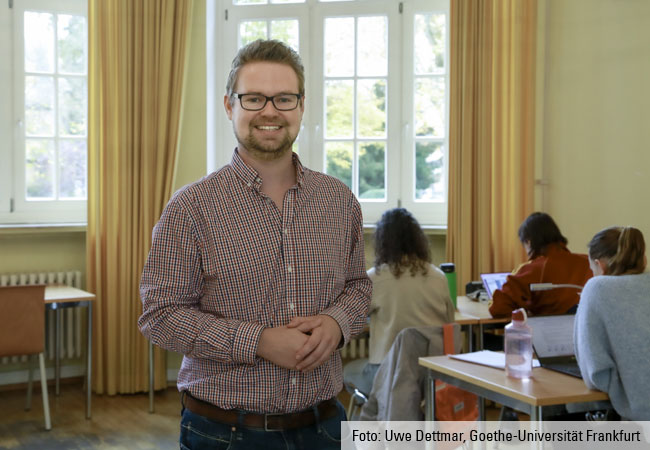
After working as a theologian, Seitz served as head of the diocesan library in Rottenburg and the library of the Wilhelmsstift seminary in Tübingen, and also worked as a research assistant at the Institute of Information Science at TH Köln University of Applied Sciences, where he simultaneously studied for a Master’s degree in Library and Information Science. Seitz also took on a teaching contract in the ethics of animal experimentation at University Hospital Frankfurt.
Open access to research results
Seitz had already addressed aspects of copyright law related to open access in his Master’s thesis. Today, alongside his responsibilities as MedHB director, his focus lies on offering “advice on open access”, which he considers a hugely important topic in university publishing. The main focus of his work is to support researchers of all subjects and faculties on their path to open access. Given the large volume of publications emanating from Goethe University’s largest faculty – the Faculty of Medicine – it was only natural to dovetail these tasks.
Open access naturally also has an impact on society, Seitz explains: “New findings in medical research should be disseminated as swiftly as possible. The COVID pandemic showed us just how important it is for data to flow rapidly so that a new vaccine can be developed, for example.”
In traditional, generally paywalled publishing, scientists publish free of charge, while libraries acquire journals either via a license or a subscription. What this means is that ultimately, only members of the subscribing institutions have access to the articles. Open-access publishing turns this financing logic on its head: a fee is paid for publication, while the work can be accessed and read by users the world over.
This heralds a far-reaching transformation that affects financial flows and challenges existing practices of reviewing scientific articles – changes that merit action from strong research institutions like Goethe University.
It is in this context that the need to support researchers and publishing academics must be seen. Seitz points out: “Researchers – including those at Goethe University – are often supported through a publication fund.” He is convinced that open access will permanently enhance the visibility and reputation of research because it is free of charge. The “diamond open access” model also will open up new possibilities because “neither publishers nor readers will have to pay any fees. The publication infrastructure for open-access first issues either will be provided by scientific institutions or financed through specialist scientific associations.” Seitz plans to support the researchers by providing specific advisory services and training modules on diamond open access. Beyond that, the University Library (UB) is currently establishing a secondary publication service as part of which Goethe University members can make their closed access publications available in a (partially) automated “green” open access system on Goethe University’s publication server. Seitz’s team is happy to advise on any legal issues associated with making publications accessible in this way.
Another field with potential for future expansion concerns the recording of Goethe University’s publication output. “A complete overview of the university’s publication output (estimated at around 8,000 publications every year) can be obtained only by through a university bibliography that makes the most extensive possible use of automation options,” Seitz says, adding: “That’s also important for funding applications.” Aside from articles, books and students’ theses, such a bibliography should also include researchers’ statements on their work, published in popular magazines and journals. Another component is the Goethe University Data Repository (GUDe), which is administered and updated by members of the research data team. Along with several other repositories, the bibliography serves to make Goethe University’s scientific achievements visible, to document research activities and to foster the dissemination and accessibility of research results.
Of course, all of this does not take place (exclusively) in the MedHB, but is closely connected with it through its director, Dr. Christian Seitz.
The Medical Library: From a nurses’ dorm to a library
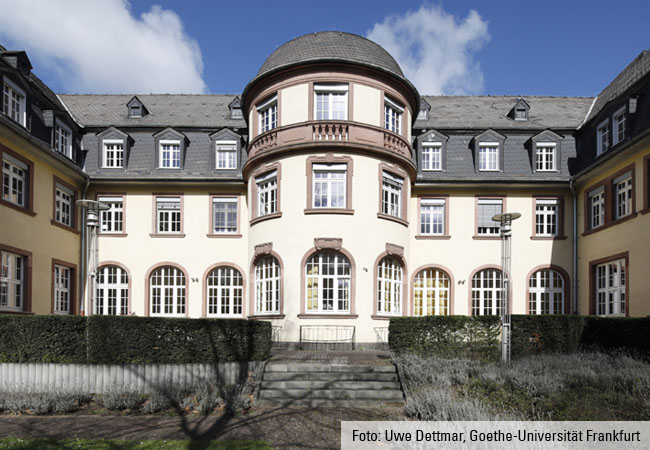
As an institution, the library predates the university: Its predecessor was founded in 1908 as the central library of the city hospital in Frankfurt’s Sachsenhausen district, tasked with drawing together literature on all the medical sciences. That is how it is described in an article written by Hiltraud Krüger (which is still worth reading) in the “Frankfurter Bibliotheksbriefe” (1996). To begin with, the library had a voluntary director, a medic who was given the title “Geheimer Medizinalrat” and had a female assistant, the “Fräulein Bibliothekarassistentin.” In 1914, the year the university was founded, the library assumed additional tasks for the Faculty of Medicine. In 1944 the library was damaged in an air-raid that destroyed a large part of its stock, after which it spent 30 years in temporary accommodation. In 1975 it was able to move into its present premises, a listed building that used to be a home for nurses.
Services and users in mind
There is no doubt that the Medical Library will concentrate even more in the future on developing information offerings aligned to user needs. “Conveying information skills will be the focus of our support services as a library,” Seitz is convinced. This includes training courses for research, e.g. on the important database PubMed. In addition, the everyday work of the library staff will also change as a result of digitalization. With self-service checkout becoming more standard, the library will be able to develop new focal areas. Seitz sees the development of learning rooms as one such future task: “The workplaces are no longer state-of-the-art. The building was once a nurses’ dorm, and the reading room was originally a chapel. Our main group of users, the students, would like to have contemporary learning and study rooms that meet their requirements.” Seitz enjoys showing visitors the sound-proofed booth where one can work undisturbed even when the library is busy. Intensive discussions are also underway for creating additional workplaces, in coordination with the faculty.
Christian Seitz also sees room for development when it comes to even closer networking with other medical libraries. “MedHB is a member of the German Medical Library Association (AGMB), thanks to which we are able to find inspiration in the services and offerings of other institutions such as those in Mainz or Heidelberg, too. After all, there is no need to invent everything ourselves.”
Facts and Figures about MedHB
Subjects represented to date:
• Medicine (Faculty 16)
Workplaces
• 200 reading places and workplaces
• 2 group workrooms
• 1 learning booth
Stock
Medicine:
around 207,000 media units
(journals, databases, e-books, etc.)
Including
• approx. 180,000 e-books
• approx. 13,500 print media (books)
• approx. 330 printed journal titles
Staff
5 full-time librarians
• supported by student assistants
Opening hours
MedHB reading room
Monday to Friday: 8:00 a.m. to 9:00 p.m.
Saturday: 9:00 a.m. to 6:00 p.m.
MedHB website →


